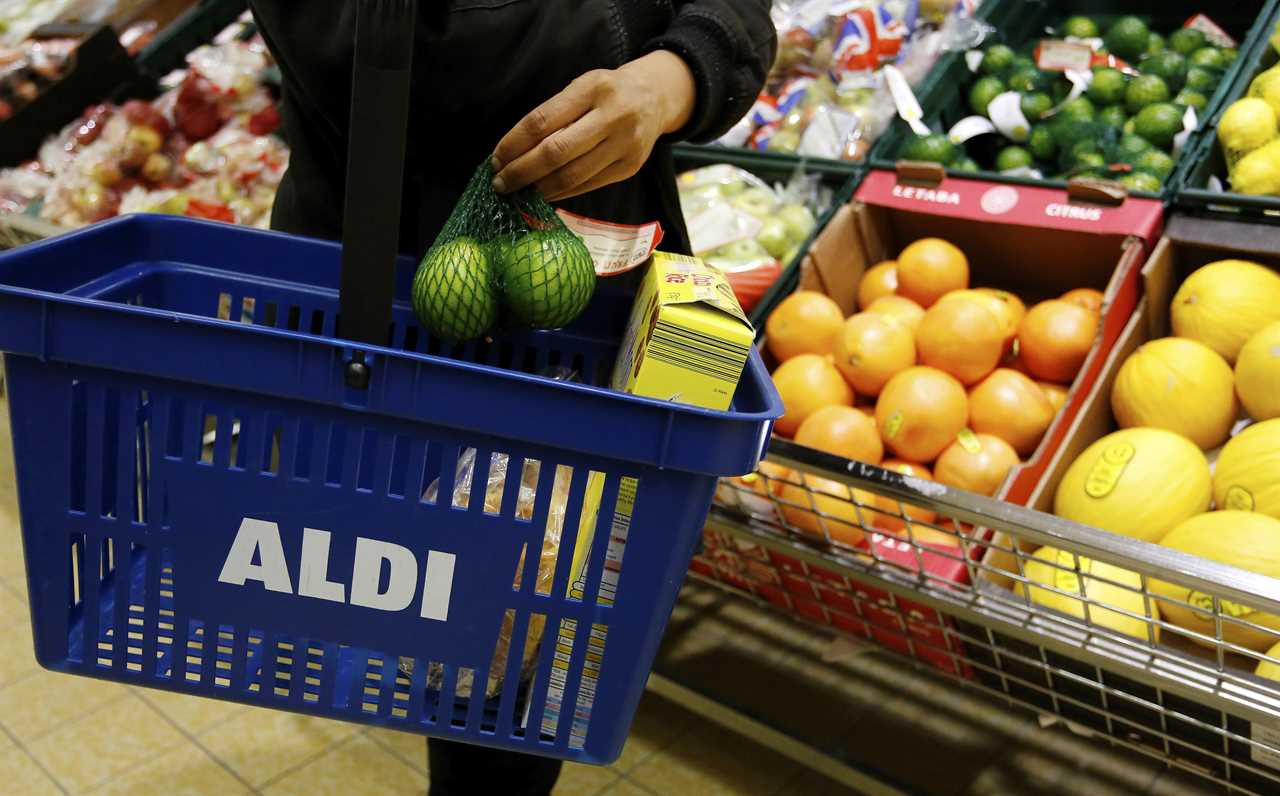
Audio Summary of the Article
Grocery Bills Climb as Inflation Edges Higher
Food prices increased by 3.5% in March, up from 3.3% the previous month, according to recent statistics. Experts attribute the rise to increased costs from the latest Budget and a new packaging tax. Chocolate prices surged, especially for Easter eggs, with sales reaching £134 million in March despite the holiday occurring later. Additionally, prices for butter and smoothies have gone up, making weekly shopping more expensive for consumers. With household budgets tightening, many Brits are turning to discount retailers to stretch their pounds further.
Discount Stores Gain Ground Amid Rising Costs
Aldi saw a significant boost in sales, growing by 5.6% in March—the fastest growth rate in over a year—capturing an 11% share of the UK grocery market. Lidl outpaced Aldi with a 9.1% increase, attracting an additional 385,000 shoppers last month. Industry leaders warn that further price hikes are likely due to increased staffing expenses from the Budget and the impending packaging tax set to impose millions in extra costs from October onwards.
Eco-Friendly Brand Wild Cosmetics Acquired by Unilever
Wild Cosmetics, known for its refillable deodorants and vegan lip balms, has been sold to Unilever in a deal worth £230 million. Founded in 2020 by Charlie Bowes-Lyon and Freddy Ward, the company employed 100 people and retained a 43% stake prior to the sale. Unilever praised Wild’s innovative product formulations and environmentally conscious packaging, highlighting the brand’s strong market presence and ethical approach.
House Prices Stabilise Ahead of Stamp Duty Changes
The Nationwide House Price Index revealed that average house prices remained steady at £271,316 in March, marking the first month of stagnation in seven months. Annual growth also held at 3.9%, contrasting with significant regional variations such as a 13.5% increase in Northern Ireland and modest rises in the East Midlands and London. Analyst Alice Haine suggests that the pause in price growth reflects the market adjusting to new stamp duty thresholds, which have been lowered to £125,000 for all buyers and £300,000 for first-time purchasers.

OpenAI Secures £30 Billion Investment, Valued at £232 Billion
OpenAI, the creator of the AI chatbot ChatGPT, has successfully raised £30 billion, bringing the company’s valuation to an impressive £232 billion. Led by CEO Sam Altman, OpenAI’s latest AI image generation tool, which allows users to create personalized cartoons, attracted one million new users within the first hour of its launch. This substantial funding positions OpenAI as one of the most valuable private companies globally, underscoring the growing significance of artificial intelligence technologies.
Motor Finance Scandal Heads to the Supreme Court
The controversial motor finance scandal, often dubbed "PPI on wheels," is set to be reviewed by the UK’s highest court. The Supreme Court will examine last October’s ruling that it was unlawful for dealerships to withhold information about hidden commissions from customers. The Financial Conduct Authority has highlighted that nearly all of the 32 million car finance agreements involve such commission payments. Banks like Lloyds, Santander, and Close Brothers have already set aside substantial funds to cover potential compensation, with total payouts expected to reach up to £38 billion.
Travis Perkins Faces £77 Million Loss Amid Economic Struggles
Travis Perkins, a leading builders merchant, reported a £77 million loss as it struggles with declining revenues and waning consumer confidence. Annual revenues fell by nearly 5% to £4.6 billion, and operating profits decreased by almost 25% to £152 million. The company’s shares plummeted by over 8.5%, reaching their lowest point since the 2008 financial crisis. Chairman Geoff Drabble attributed the downturn to strategic errors in recent years, highlighting the urgent need for adjustments to navigate the challenging economic climate.
Frequently Asked Questions
What is a budget deficit?
A budget deficit occurs when a government's expenditures exceed its revenues over a specific period, usually a fiscal year. This can lead to increased borrowing and national debt if not addressed through spending cuts or revenue increases.
What is the role of central banks in the economy?
Central banks manage a nation's currency, money supply, and interest rates. They implement monetary policy to control inflation, stabilize the currency, and foster economic growth. They also serve as lenders of last resort to the banking system during financial crises.
What are the main functions of money?
The primary functions of money are as a medium of exchange, facilitating trade; a unit of account, which provides a standard measure of value; a store of value, allowing individuals to save and transfer purchasing power over time; and a standard of deferred payment, enabling credit transactions.
What is the difference between saving and investing?
Saving typically involves setting aside money in a secure account for short-term needs or emergencies, while investing involves using money to purchase assets like stocks or real estate with the expectation of generating a return over the long term. Investing carries higher risks but offers the potential for greater rewards.
How can I improve my credit score?
To improve your credit score, make timely payments on all debts, reduce credit card balances, avoid opening unnecessary credit accounts, and regularly check your credit report for errors, disputing any inaccuracies. Maintaining a mix of credit types and keeping old accounts open can also be beneficial.
What are credit scores and why are they important?
Credit scores are numerical representations of an individual's creditworthiness, calculated based on credit history, payment behavior, and debt levels. They are important because they impact the ability to obtain loans, credit cards, and favorable interest rates, affecting overall financial health.
How can I start saving for retirement?
To start saving for retirement, begin by establishing clear retirement goals and determining how much you need to save. Contribute to employer-sponsored retirement plans, such as a 401(k), and consider opening an Individual Retirement Account (IRA). Regular contributions and taking advantage of compounding interest can significantly boost your retirement savings over time.
Statistics
- According to the Federal Reserve, approximately 39% of Americans do not have enough savings to cover a $400 emergency expense.
- As of 2021, the average student loan debt for recent graduates was approximately $30,000, according to the Federal Reserve.
- According to a survey by the Financial Industry Regulatory Authority (FINRA), about 66% of Americans could not correctly answer four basic financial literacy questions.
- A study by the National Endowment for Financial Education found that 60% of Americans do not have a budget.
- According to the World Bank, around 1.7 billion adults worldwide remain unbanked, lacking access to basic financial services.
- Research by the National Bureau of Economic Research found that individuals who receive financial education are 25% more likely to save than those who do not.
- According to the Bureau of Labor Statistics, the average American spends about $1,500 per year on coffee.
- A survey by the American Psychological Association found that 72% of Americans reported feeling stressed about money at some point in the past month.
External Links
How To
How To Understand and Use Credit Cards Wisely
Understanding credit cards involves knowing how they work, including interest rates, fees, and benefits. Choose a credit card that aligns with your spending habits, whether for rewards, cash back, or low interest. Always pay your balance in full each month to avoid interest charges and maintain a good credit score. Use your card for regular expenses to build credit but avoid overspending; stick to your budget. Regularly check your statements for errors and fraudulent charges. Finally, understand the terms of your card, including rewards expiration and annual fees, to maximize benefits while minimizing costs.
 PoliticsRoyaltySoap OperaGamingMoneyPrivacy PolicyTerms And Conditions
PoliticsRoyaltySoap OperaGamingMoneyPrivacy PolicyTerms And Conditions
